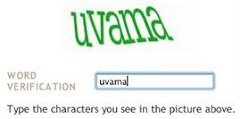Use the type of clause, phrase, or grammar indicated to complete the following sentence; you can add the phrase or clause before or after the clause below:
... May Day means different things to different people ...
1. Use a phrase
2. Use a dependent clause
3. Use an independent clause
Note:you can still see previous Sentence Completion questions; they are posted in the archive in the side bar.
Wednesday, April 30, 2008
Subscribe to:
Post Comments (Atom)


7 comments:
#1, Because of the difference in culture, May Day means different things to different people.
#2, Unless people share the same culture, May Day means different things to different people.
#3, Since May Day means different things to different people, people celebrate the day differently
Ying: #s 1 and 2--Excellent; #3--You have changed the original independent clause into a dependent one and then add an independent clause;-)
#3 May Day means different things to different people;therefore people celebrate the day differently.
Ying: That's better--just note that after "therefore" you need a comma;-)
May day means different things to different people and different believers.
Because of the differences in cultures, May day means different things to different people.
May day means different things to different people; therefore, it's celebrated differently around the world.
1. During spring holidays, May Day means different things to different people.
2. Although, May Day means different things to different people, almost everyone likes to celebrate May 1st as a labor day of working people.
3. May Day means different things to different people and the May1st could be about pagan holiday of fertility, or international holiday for working people across the globe.
Janine: Excellent.
Irena:#1--this reads as though it is only during the spring holiday that May Day means different things ... I don't think that is what you intended;-) #2--you have changed the original independent clause into a dependent one and then added an independent clause; #3--good, but do be careful with punctuation.
Post a Comment